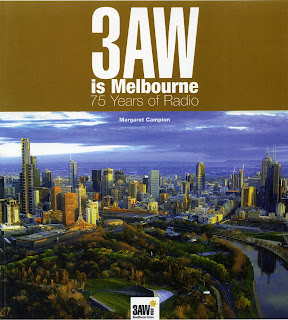Some writers
plan their lives; some don’t. I’m one of those folk who have planned almost
nothing about their lives. I can’t make up my mind whether this is from
laziness or a lack of commitment or a deep-seated fear of failing to achieve a
lifetime of targets. It’s probably chiefly the last of these three, if I’m
honest.
I have known
ambitious people who have led miserable lives never achieving things that they
regard as their due. Not me. I can’t be bothered. But having stated that, it is
a serious mistake for a writer not to make the best of the opportunities that
come their way.
Although I
have always loved writing, it was never my expectation that I would become
someone who earned a living from it. As a teenager in the small Australian town of Charlton, Victoria, I
worked after school for the local jeweller and watchmaker and it had been
agreed that when I had completed my schooling I would begin a formal
apprenticeship as a watch repairer.
But it
wasn’t to be. My father, who owned a small printing business and edited the
local weekly newspaper, the Charlton Tribune, had other ideas. Unbeknown to me, he was losing a
struggle against cancer and he needed me to help out in the business. So began
an apprenticeship as a printer, learning skills that have proved useful to this
very day.
After my
father’s death, my mother took over the business, and as she was not a journalist,
I found myself with the opportunity to contribute a growing of articles to the
newspaper, affectionately referred to as “the local rag”. A few years later my
mother remarried and sold the business, and I moved on to broadcasting
journalism with 3BO Bendigo and 3AW Melbourne, then moved to London and the BBC World Service.
None of this
had been planned. It just sort of happened. But I am hugely grateful for the
skills I acquired along my haphazard route -- particularly in radio and
television news which taught me there can be no such thing as writer’s block in
that medium. The quickest way to be fired in broadcasting is to tell an editor
“I can’t think what to write”.
After I
retired from the BBC, I did the usual lecturing and consulting stuff, but still
without any plan to write books. Instead, when I stumbled across a scandal in my
own family, I thought of it more as a film than a book. It was a chance
suggestion by my wife that prompted me to match the screenplay, God's Triangle, with a book. Then
a discussion with a journalist mate led to another screenplay and another book
– this time about the moral challenges facing foreign correspondents and title The Mortal Maze. I've now written a novel version of the first book: Florrie - A Life Unexpected.
I have a few
other possible books that I might produce, if I don’t get too distracted by
writing for blogs and contributing too many postings on Facebook and Twitter,
but if they don’t happen, too bad.
If this all seems a bit flip, it isn’t intended to be. My
message is that if you want to plan your life and career, go ahead. But don’t
get upset if it doesn’t quite work out the way you hope. Instead, I suggest you
let life roll on while grasping those opportunities that do come your way and
make the very best of them.
That’s my
plan for a happy, disappointment-free writing life.
First published as a guest posting on the Alliance of Independent Authors Blog




















